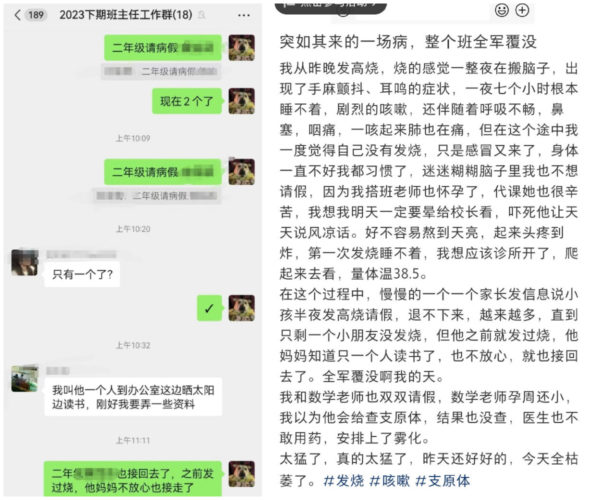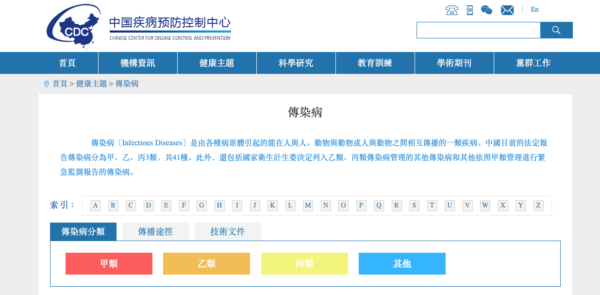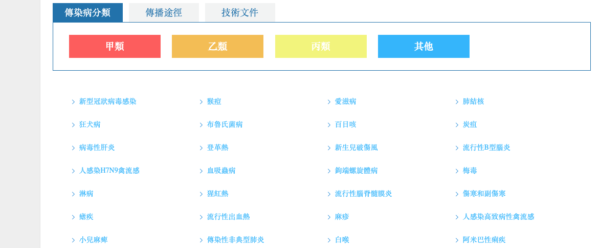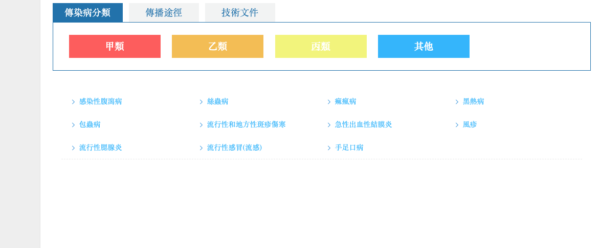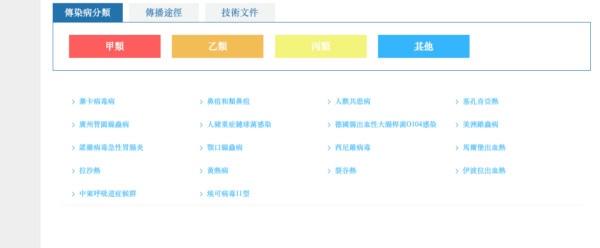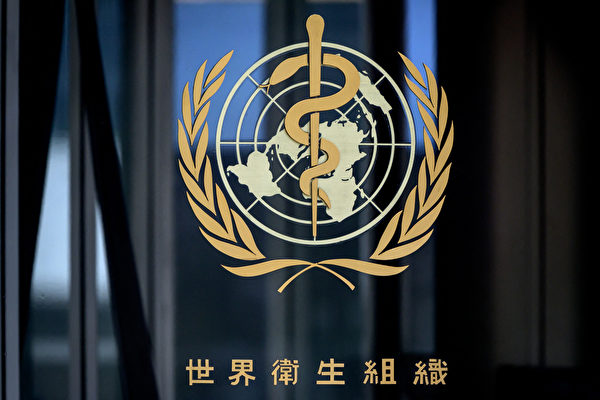
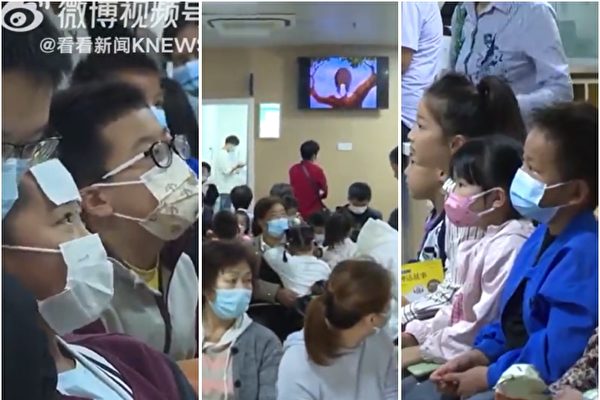


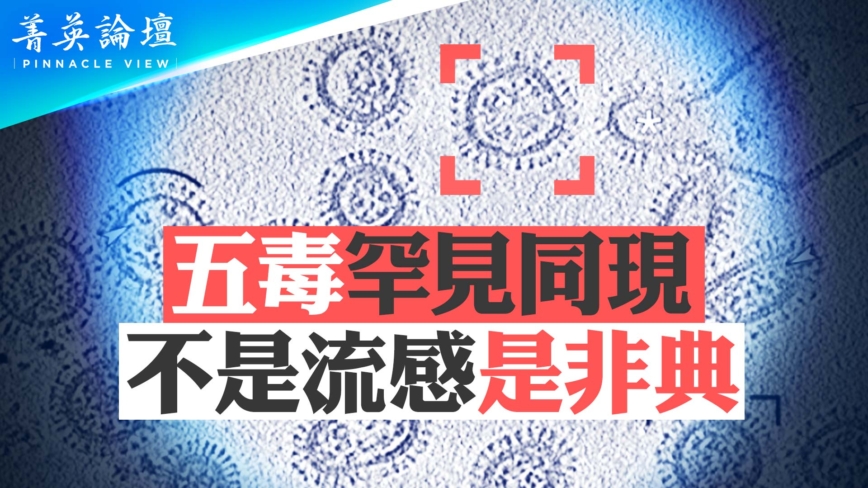

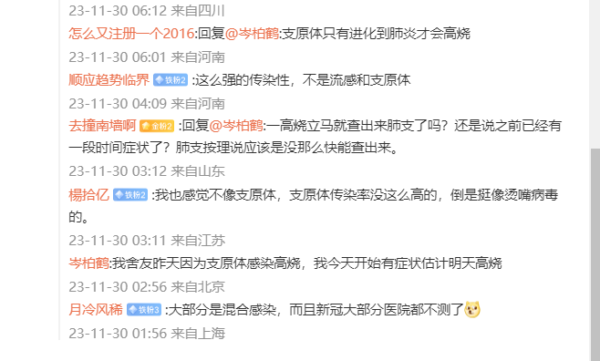

Editing : Rhoda Wilson / https://expose-news.com/2023/11/30/philippines-notifies-who-it-rejects-ihr/
On Tuesday, the House of Representatives (“HOR”) of the Republic of the Philippines passed a resolution to reject the World Health Organisation’s (“WHO’s”) amendments to the International Health Regulations (“IHR”) adopted by the World Health Assembly (“WHA”) on 27 May 2022. Additionally, the resolution rejected proposed amendments that are “currently being negotiated in secret” by the WHA and due for adoption by member states in May 2024.
Immediately following the passing of this resolution, Representative S. Dan Fernandez, who submitted the resolution to the HOR and is also the Chairman of the Public Order and Safety Committee, notified WHO in writing that the Philippines House of Representatives rejects the IHR amendments adopted in 2022.
In May 2022 the WHA quietly agreed to reduce the period during which nations have to opt out of future amendments to the IHR. For nations to retain the longer 18-month period previously allowed for nations to opt out, countries needed to send WHO a short note that they are opting out of the amendments decided by the WHA in 2022 before 1 December 2023.
In November, the Philippines HOR rejected this amendment and went further. It also rejected the proposed IHR amendments due for adoption by WHO member states in May 2024.
At the time of writing, the latest resolution to be uploaded onto HOR’s website is HR01463 dated 13 November. However, as reported by citizen journalist and data scientist Super Sally 888, on 28 November resolution HR1490, which had been submitted by Rep. Fernandez and then adopted by the House of Representatives, was filed. The resolution states:
The Philippines Congress is made up of the lower house, the House of Representatives, and the upper house, the Senate. In the Philippines, resolutions fall into one of three categories:
- Joint resolutions – require approval from the Senate, the House of Representatives, and the signature of the President. They have the force and effect of a law once approved.
- Concurrent resolutions – used for matters affecting operations of both chambers and must be approved in the same form by both. These are not transmitted to the President; hence, they do not have the same force and effect of a law.
- Simple resolutions – deal with matters entirely within one of the chambers. As such, these are not referred to the President and do not have the force and effect of a law.
It’s unclear which type of resolution HR1490 falls into but presumably, it is a concurrent resolution as WHO diktats will affect the functioning of both houses.
To not miss WHO’s deadline, as Chairman of the Public Order and Safety Committee, on 28 November Rep. Fernandez notified WHO in writing of the HOR’s decision:
One of the reasons given for the rejection of the 2022 IHR amendments was that the HOR had only recently opened an investigation into excess deaths relating to the response to the covid pandemic. “This congressional inquiry may still not be completed by the 77th World Health Assembly at the end of May 2024, which is the target date for the adoption of the substantial 300+ IHR amendments,” Rep. Fernandez told WHO’s Dictator-General-in-waiting.
Will the Bill Gates-funded WHO accept notification from the Philippines HOR?
The IHR states:
The IHR provides for nominating “National IHR Focal Points” and “IHR Contact Points” (for implementing IHR health measures); and, “State Parties” (to detect, assess, notify and report events according to the IHR). However, the IHR does not use these terms in the context of rejecting or opting out of the Regulations. Instead, the terms “State” or “Member State” are used when referring to opting out or rejection of the IHR.
It is a challenge, to say the least, to find any information on WHO’s website regarding from which representatives of member states Tedros the Terrorist will accept notification that a country “affirmatively opts out within a specified time.”
For example, the UK’s engagement with WHO is officially managed by the Department of Health and Social Care (“DHSC”). Does that mean WHO would only accept notification from the UK if it was issued by DHSC? The system is so corrupted that it would not be surprising for WHO officials to use any excuse to ignore and gaslight opt-out notices from officials who represent a country.
In the case of the Philippines, Super Sally 888 noted: “[Rep. Fernandez’s] letter is not, alone, sufficient for the Philippines to reject the IHR amendments; formal notification must also come from the Office of the President [or] Department of Foreign Affairs. However, the House Resolution 1490, and the letter to the WHO issued on HOR letterhead [will] push the issue. The President will need to take a stand!”
Filipino Patriots have begun a petition to the Government of the Republic of the Philippines. It calls on Filipino government leaders and public officials to defend the Filipino people against the threatened dictatorship and medical martial law that will be imposed by WHO through the amendments to the IHR. For those who are Filipino, you can read and sign the petition HERE.
For all peoples of the world, a petition has been started on Citizen Go to the delegates of WHO’s upcoming Intergovernmental Negotiating Body (“INB”) negotiations. The petition states:
News (16)
WHO notified that the Netherlands can only be bound by IHR amendments after approval by Parliament, and that has not happened
On Tuesday, Member of the Netherlands Parliament Wybren van Haga wrote to the World Health Organisation’s (“WHO’s”) Director-General, Dr. Tedros Adhanom Ghebreyesus, to inform him that the 2022 amendments to the International Health Regulations (“IHR”) are subject to the formal approval by the Dutch Parliament.
“I notify you, in my capacity as Member of Parliament, of the reservation that the 2022 [IHR] amendments require the approval of the Dutch government before the 2022 amendments can enter into force in The Netherlands,” he told Tedros.
In May 2022 the World Health Assembly (“WHA”) quietly agreed to reduce the period during which nations have to opt out of future IHR amendments. For nations to retain the longer 18-month period previously allowed for nations to opt-out, countries need to send WHO a short note that they are opting out of the amendments decided by the WHA in 2022 before 1 December 2023.
“Pursuant to the 2022 Amendments the period for rejection of amendments to the IHR 2005 is reduced from 18 months to 10 months after adoption and notification. The 2022 Amendments reduce the possibility for members of WHO to reject or make reservations to amendments of the IHR 2005. That is why we object to the 2022 Amendments,” Mr. van Haga informed Tedros.
Mr. van Haga requested that Tedros make his letter part of the public record and publish it on WHO’s website. He has sent a copy of his letter to the Minister of Foreign Affairs of the Netherlands, Mrs. Bruins Slot, to the general secretariat of the European Union, to the chair of both houses of the Dutch Parliament and to the chair of the European Parliament.
In June 2023, MP Pepijn van Houwelingen’s parliamentary request to block the Dutch Cabinet from approving the new WHO “treaty” was backed by thirty lawmakers.
The 30 MPs sent a letter to the chair of the Dutch Parliament stating that Parliament’s approval of the 2022 amendments to the IHR was required because these amendments are a treaty or a protocol to a treaty and as such, they require the approval of the Dutch Parliament.
Effectively, instead of adopting WHO’s IHR amendments outright, the Dutch Cabinet must now submit a bill to the House of Representatives, where lawmakers will then debate the bill before it’s put to a vote.
On 25 October, Mr. van Houwelingen tweeted that the government had informed WHO that it does not agree to the 2022 IHR amendments.

Mr. van Haga noted Mr. van Houwelingen’s tweet in his letter to Tedros:
As the group of Members of the European Parliament had done, Mr. van Haga also brought to Tedros’ attention that the IHR amendments were “adopted” in May 2022 “without a normal voting procedure being in place.”
“The chair to the meeting simply asked whether anybody objected to the 2022 Amendments,” Mr. van Haga said and provided a link to THIS video which, at the time of writing this article, is no longer available.
Mr. van Haga’s letter continued:
Ref.: https://expose-news.com/2023/11/30/netherlands-can-only-be-bound-by-ihr-after/
News (17)
New Zealand Government will inform WHO it does not agree to International Health Regulations amendments
The newly sworn-in New Zealand government intends not to be pushed around by UN resolutions or by the World Health Organisation anymore.
According to a coalition agreement with New Zealand First, the new government will undertake a “National Interest Test” before accepting any agreements from the United Nations or the World Health Organisation’s proposed amendments to the International Health Regulations.
To this aim, the New Zealand Cabinet must “reserve against” proposed amendments to International Health Regulations by 1 December 2023.
On Friday, centre-right National signed coalition agreements with libertarian ACT New Zealand and populist New Zealand First allowing the three parties to form a government, bringing an end to six years of left-wing governments in New Zealand.
Yesterday, New Zealand Governor General Cindy Kiro, who represents British monarch King Charles III as head of state, swore National Party leader Christopher Luxon in as New Zealand’s 42nd prime minister along with ministers of his cabinet at Government House in Wellington. Parliament is expected to sit next week and begin working on new policies.
On the day they were signed, Friday, the incoming government released its coalition agreements which outlined a number of policy plans. You can read the coalition agreement between the New Zealand National Party and ACT New Zealand HERE, and between New Zealand National Party and New Zealand First HERE.
According to the coalition agreement with New Zealand First, one of the most urgent issues the new government must address is that the Cabinet will tell officials not to agree to any policy changes suggested by the World Health Organisation (“WHO”). The coalition agreement states:
News (18) to (19) / https://expose-news.com/2023/11/25/slovakia-will-not-be-entering-into/?cmid=a8785128-6382-4ba1-ab21-c7392240e022
News (18)
Slovakia will not be entering into any international pandemic agreements with WHO, Prime Minister says
During a SMER party conference, Slovakian Prime Minister Robert Fico declared that his government will not sign the World Health Organisation’s Pandemic Treaty and SMER Members of Parliament will not ratify in parliament the Pandemic Treaty with the WHO because it is a project of greedy pharmaceutical companies.
Robert Fico was appointed as Slovakia’s Prime Minister for the fourth time on 25 October 2023 after his SMER – Slovenská Sociálna Demokracia (“SMER”) party won the election on 30 September and formed a coalition with the centre-left HLAS – Sociálna Demokracia (“HLAS”) and nationalist Slovenská Národná Strana (“SNS”) parties.
A week ago, during an hour-long speech at the SMER party conference, of which he is chairman, Prime Minister Fico stated that he will not support strengthening the powers of the World Health Organisation (“WHO”) at the expense of sovereign states in the fight against pandemics. “Only insane pharmaceutical companies could come up with such nonsense,” he told the more than 400 guests, ambassadors, delegates and party members present.
His speech is on YouTube in Slovak. There is no autogenerated translation available so we turn to alternative sources for translations into English. Door to Freedom has published the clip below from Fico’s speech with English subtitles.
Writing about his speech alternative media outlet InfoVojna wrote (Czech to English translation using Google Translate):
Martin Demirov who describes himself as someone who likes to “post translations of censored press articles and search for various interesting facts” has written about Fico’s speech in a post on Twitter. His post is in Polish, which we’ve reproduced below in English using the translation generated by Twitter.
News (19)
Fico delivered a speech at the Party Congress: "The previous government kiled 20,000 people with Covid!"
Reporter : Martin Demirov
Fico outlined his priorities: If they arrested me, change would not be possible.
One of the longest-existing parties, which will celebrate its 25th anniversary next year, held its annual congress.
SMER won the elections in September, and party chairman Robert Fico immediately reminded more than 400 guests, ambassadors, delegates and party members not to be so serious. “For God’s sake, we won.” In his introductory speech, he presented a vision of change for the coming year. Remembering the “covid madness” and the need to change the law protecting criminal groups associated with the previous government, he did not hide his joy at reuniting with the HLAS party.
In the first half of his speech, Fico criticised the former government and its leadership (for covid madness, for warmongering), in the second half he talked about the party’s goals, and less than two hours later he ended the speech with the words: “we are here, we move on, they did not break us.”
According to party vice president Juraj Blanar, Fico’s leadership is important for SMER. Long live the Slovak Republic,” he concluded his speech. What was the direction of change?
The guests included representatives of Bulgaria, ambassadors of Great Britain, China, the United States of America, as well as Cuba, the Czech Republic and Hungary.
The Polish ambassador also confirmed his presence. The guests also included the president of the Pensioners’ Union, Michał Kocjan, the president of the Association of Slovak Towns and Villages, Józef Bożek, and the president of the Association of Anti-fascist Fighters, Viliam Longauer. Representatives of employers were also present.
Among the Ministers present were Defence Minister Robert Kalinak, Finance Minister Ladislav Kamenicki and Agriculture Minister Ryszard Takacz. Zuzana Plewikova, deputy chairman of the party and member of the youth organisation, also attended the meeting.
Thanks to over 20 years of experience, Fico knows how to energise his people and focus on proven electoral topics, thanks to which, although he won electoral votes, he was among politicians leaning towards the alternative scene. “It’s a party convention, it’s not a cabinet meeting, so stop being so serious, we won the election, for God’s sake.”
Blanard welcomed Fico, the national anthem was played and a minute of silence honoured the memory of the dead
In his speech, he wanted to present a vision for the next year, but he didn’t get there until the second half of the speech. “We won the parliamentary elections for the fifth time,” he said.
“We are absolutely the best, and I emphasise this a thousand times, political party in the history of modern Slovakia and we want to remain that way,” he said.
We naturally reconnected with HLAS.
At the beginning of his speech, he also touched on the illegal actions of the former government during the Covid-19 pandemic, praised the media alternative to the mainstream and attacked the previous government for repression and compulsory vaccinations. Four Media – Denník N, denník Sme, Markízu and Aktuality – did not receive accreditation. Since last week, they have also been unwanted guests in the government building.
“Slovakia is talking more and more openly about the 20,000 victims of mismanagement in the country and the government’s senseless decisions,” continued the four-time Prime Minister. He wants to support the efforts of politicians who want to hold the previous government to account and has no plans to support the work of the World Health Organisation to the detriment of sovereign states when it comes to managing the fight against the pandemic. “Such nonsense could only have been invented by greedy pharmaceutical companies,” he said.
He called SMER a “write-off” party after the 2020 elections, whose opponents were delighted that social democracy split into two groups when Peter Pellegrini left the party to gain the right to vote. “But it is natural that we met again to co-operate in the government. It is no coincidence that we kept emphasising before the early elections that the basis for forming a new government should be the merger of SMER and HLAS,” he said.
“The shock of our opponents after SMER’s election victory and subsequent decisive steps to quickly form a government was so great that they created an atmosphere as if we had stolen the electoral victory and had to hand it over to the opposition liberal “progressive Slovakia,” he said. In addition to PS, he again criticised President Zuzana Caputova.
In response to the suspension of membership in the European Socialist Party, Fico said he did not know why they intervened, because it was the same party as in the past. “SMER is not a pennant that turns wherever the wind blows,” he said, adding that Portugal was behind the suspension. Party membership has never served them well, and Fico only remembers a lot of criticism. “When did the party of European Socialists help us over the last 20 years? When? I don’t remember,” he added.
Andrei Danko’s party, coalition partner SNS, was criticised abroad mainly for choosing a more radical path. Before the elections, SNS merged with three smaller far-right organisations, and several of its members were candidates for the Our Slovakia People’s Party, whose leader, Marian Kotleba, was convicted of extremism and also lost his seat.
Robert Fico blamed the politicians who led Slovakia in the last parliamentary term for the state of the country it is in. “We were not destroyed because we had a different opinion about covid, we were not destroyed because we had a different opinion about Ukraine and we were not destroyed because of an attempt to arrest us for political activities,” he said.
“I don’t know if there is an opposition politician in the EU who has been accused four times in three years for his political views. Not because of corruption, but because of his political views,” he told foreign guests. Fico, along with Tibor Gashpar and Robert Kalinak, were accused by the previous authorities of many “crimes.”
“I was lucky that I didn’t go to prison, because if they had put me in jail for my political views after two press conferences where we told the truth, neither you nor I would be sitting here today because the party would have been destroyed,” he said.
Fico also touched on the presidential and European elections. “The party’s vice-chairman Lubosz Blaha also expressed interest in the elections, the European Parliament is certainly waiting for you, Lubosz,” Fico said. Recently, the opposition wanted to fire him for hanging a portrait of revolutionary Che Guevara instead of a portrait of President Zuzana Caputova after taking over as deputy speaker of Parliament, but the coalition blocked the session. A few days ago, he also published his book “CHE”
In addition, he also talked about the need for changes in the Penal Code and the Code of Criminal Procedure, and the need for changes in the special prosecutor’s office. He called, among other things, for an urgent change to the whistle-blower law, which currently protects investigators around Jan Churilla and Lubomir Danek.
The party’s goal is to stabilise the country and finances and win again. Later, Fico also reached the main political goals of the SMER party. In particular, the most important of them is a successful government that will end in 2027 with victory in the parliamentary elections. In his speech, he outlined what the government should focus on in the coming months. “I don’t see a successful government as a set of numbers, indicators or charts. We will only be successful in 2027 when people realise that it is better, more peaceful and safer,” he said.
Fico stressed the need for political stability and efforts to minimise conflicts within the coalition. He also called for quick policy solutions to show interest in “stabilising disrupted public finances at a reasonable and sustainable pace.” Sufficient financial reserves must also be created to compensate for high energy prices, especially for households.
He also wants to reduce the impact of high interest rates on mortgages and subsequent refinancing in 2023, while announcing direct mortgage assistance in 2024. He also confirmed the aim of creating the financial conditions for the payment of the full 13th pension. He also stressed the need to have all the necessary regulatory tools and resources to intervene in the event of significant fluctuations in food prices.
According to Fico, the government should also immediately decide how to transfer as many European Funds as possible to regions, cities and municipalities and simplify the administrative burden of obtaining them as much as possible. He also called for changes to regulations governing licensing procedures and procurement conditions to be approved “in record time.” According to the Prime Minister, the best proposal for the Education System for practical purposes should also be agreed upon so that the changes come into force at the beginning of the 2024/2025 school year.
He also confirmed that the government had started negotiations on new foreign investments. “We have something to consider, we are currently reviewing projects. It is always a question of the scale of state aid,” he said. He also considers it his duty to support every Slovak company that wants to operate in foreign markets.
Within two to three months, the coalition will have to develop a mechanism and regulations to shorten the period during which legal migrants with the qualifications necessary to run a business in Slovakia will be able to obtain all permits. He said the proposed measures are the minimum the government must take. He emphasised that all actions should be undertaken within the framework of broad social dialogue. He also confirmed that talks on the government’s withdrawal will take place in Trenčín in December and in Prešov at the end of January. In addition to Fico, the party’s vice presidents, Lubosz Blaha, Ladislav Kamienicki and Ryszard Takacz, also appeared.
News (20)
Estonia notifies WHO that it rejects the Pandemic Treaty and amendments to the International Health Regulations
Editor : Rhoda Wilson / https://expose-news.com/2023/11/25/estonia-notifies-who-that-it-rejects-pandemic-treaty/?cmid=a8785128-6382-4ba1-ab21-c7392240e022
On 22 November, 11 Members of the Estonian Parliament wrote a letter to the World Health Organisation (“WHO”) to reject the proposed international agreement on pandemic prevention preparedness and response – also known as the “Pandemic Treaty” or “Pandemic Accord”. The letter also rejects the amendments to the International Health Regulations (2005) (“IHR”).
Last month we published an article explaining that in May 2022 the World Health Assembly (“WHA”) quietly agreed to reduce the period during which nations have to opt out of future amendments to the International Health Regulations. For nations to retain the longer 18-month period previously allowed for nations to opt-out, countries need to send WHO a short note that they are opting out of the amendments decided by the WHA in 2022 before 1 December 2023.
The letter from the Estonian MPs is dated 22 November 2023, 8 days before the 1 December deadline. The MPs haven’t simply opted out of the amendments decided by the WHA in 2022, they have gone much further and rejected both the proposed Pandemic Treaty and the IHR amendments in their entirety as well as additional funding to WHO.
Kalle Grünthal, one of the MPs who signed the letter, broke the news on Facebook. The letter begins:
You can read the full letter in the image at the end of this article.
As Estonian alternative media site Telegram.ee noted, this contradicts a decision made early last year. On 4 March 2022, the Estonian European Union Affairs Committee (“EUAC”) held a meeting to vote on whether the European Commission was authorised to negotiate WHO’s two instruments on behalf of Estonia.
The EUAC is a standing committee of the Parliament of Estonia (the Riigikogu) and has a deciding and coordinating role on issues relating to the European Union. The Estonian government is bound by EUAC’s decisions and uses these decisions in its discussions in Europe. If the Government does not follow EUAC’s decisions then it must provide EUAC with the reasons for not doing so.
At the March 2022 meeting, three members of the EUAC voted against and nine voted in favour of giving the European Commission the authority to open negotiations on a Pandemic Treaty, IHR amendments and improving the sustainability of WHO funding on behalf of the Republic of Estonia.
Now the Parliament of Estonia has spoken. Below is a copy of the letter from the parliamentarians to WHO rejecting its Pandemic Treaty and IHR amendments.


